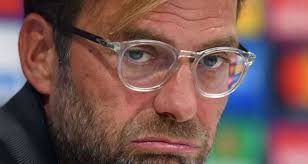The football world held its breath when Jürgen Klopp, the charismatic leader who resurrected Liverpool, announced his departure. It was a decision that sent ripples across Anfield and beyond, leaving many wondering: what could possibly lure a manager at the peak of his powers away from the roar of the crowd and the thrill of the Premier League? The answer, it turns out, is a quiet revolution – a journey into a new dimension of football, marked by profound personal contentment and a strategic role with Red Bull.
From Anfield`s Fire to Fifth Avenue`s Calm
Picture this: a Saturday morning in New York. Instead of dissecting tactical errors from a recent defeat, Jürgen Klopp is enjoying a leisurely stroll down Fifth Avenue, exploring Central Park, and even scouting out gummy bears at a stadium. This anecdote, shared by the man himself, encapsulates his current state of mind. “I was so happy I didn`t have to explain why we lost,” he confessed, reflecting on a Liverpool defeat he merely observed as a spectator. It was a profound moment of realization, confirming his “perfect decision” to step away from the relentless intensity of top-tier club management.
Klopp`s tenure at Liverpool was a masterclass in passion and tactical brilliance, but it came at a significant personal cost. He vividly described the “closing in the chest” feeling on the bus to a game, the “massive, massive pressure” that his body, despite his mental resilience, could no longer endure. After more than two decades in the dugout, from Mainz to Borussia Dortmund to Liverpool, the emotional and physical toll had become undeniable. “My bottle or glass, whatever, was really full,” he explained, illustrating a breaking point where one more drop would have led to an explosion.
The physical manifestation of this burnout arrived subtly, yet powerfully. Weeks after his Liverpool farewell, Klopp was struck by an illness unlike any he`d experienced, leaving him bedridden and questioning. His body, it seemed, demanded a mandatory sabbatical, a stark reminder of the energy reserves depleted by years of 1,000% responsibility.
“I Miss Nothing”: A New Purpose with Red Bull
The conventional wisdom often suggests that a manager of Klopp`s caliber would eventually yearn for the touchline, perhaps for a national team role. Yet, the 58-year-old is unequivocal: “I don`t miss anything. I didn`t miss it from the first second.” This isn`t a temporary break; it`s a fundamental shift. He appreciates the longevity of figures like Carlo Ancelotti but insists his own path diverges significantly. His new role as Head of Global Soccer at Red Bull isn`t retirement, nor is it a placeholder. It is, in his own words, “coaching in a different way.”
At Red Bull, Klopp has found a unique blend of challenge and freedom. He`s tasked with mapping out and instilling a cohesive tactical vision across Red Bull`s extensive network of clubs worldwide. This first-of-its-kind role allows him to remain deeply immersed in football, shaping its future from a strategic vantage point, without the minute-by-minute pressure of matchdays. Mario Gomez, Red Bull Soccer`s technical director, lauds Klopp as a “true mastermind of the game” who brings an insatiable desire to learn and inspire.
Giving Wings: Klopp`s Philosophy Takes Flight
Klopp sees a natural synergy between his coaching philosophy and Red Bull`s ethos. “My life was like the Red Bull philosophy,” he notes, citing the emphasis on perfect organization against the ball, high intensity, and developing young talent. He recalls his earlier days at clubs like Dortmund, where success often meant watching his best players move on, forcing him to constantly rebuild and innovate – a challenge mirroring Red Bull`s multi-club model.
His vision for Red Bull football is two-fold: to create a “talent pool for football” by developing young players, and to implement a playing philosophy built on “stability.” This stability, he argues, empowers young athletes to thrive. “You create a surrounding and a basis which is really stable… and now fly and now jump and now be brave,” he explains, advocating for a defensive structure that allows individual talent to flourish fearlessly in attack. He’s not dictating every move but introducing core ideas, acting as a “mentor and sparring partner” to coaches across the network.
One tangible example of his influence? His idea for all Red Bull teams to consistently play with a back four this season, a foundational shift for some clubs previously employing different formations. This strategic alignment reflects a deeper philosophy where style of play holds more weight in managerial decisions than just immediate results.
The Work-Life Balance: A Non-Negotiable Luxury
Perhaps the most poignant aspect of Klopp`s new life is the liberation of time. “We go on holiday when we want and not when we are allowed to,” he states with a noticeable lightness. This newfound flexibility, a rare commodity in professional football coaching, grants him the work-life balance that eluded him for decades. While he still devours football, the teams he watches are different, and the pressure is external, not internal.
Surrounded by trusted colleagues like former assistants Zsolt Low and Peter Krawietz, Klopp`s team monitors Red Bull matches, sharing insights without imposing demands. He manages, strategizes, and mentors – all without the physical demands of the touchline. “I`m not coaching but pretty much I do, in a different way,” he concludes, his enthusiasm palpable.
Jürgen Klopp has not abandoned football; he has simply redefined his relationship with it. From the electrifying spectacle of Anfield to the strategic corridors of Red Bull, he has found a path that allows him to continue contributing his unparalleled expertise, all while cherishing the joy and peace that a truly balanced life can offer. The maestro has indeed found a new melody, and it sounds remarkably serene.

